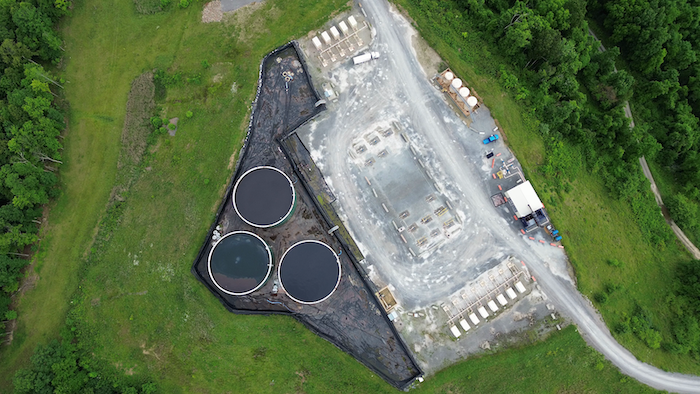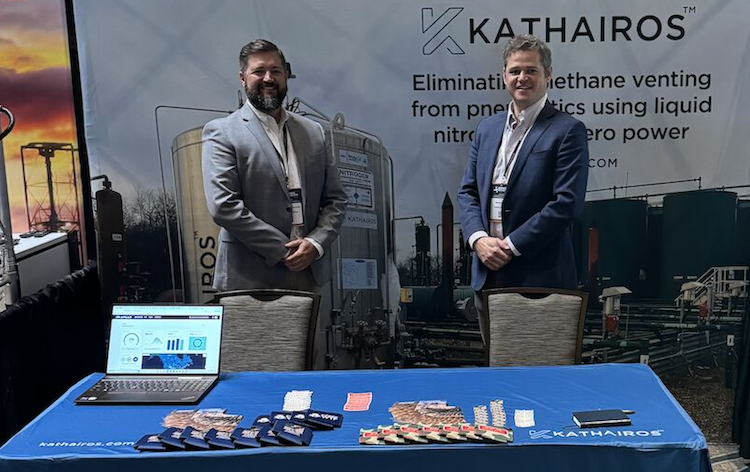
Kathairos has emerged as the leading North American solution for methane elimination from pneumatics, with more than 2,400 systems in operation across North America and over 70 major oil and gas producer partners.
In this post
Methane elimination is no longer just a regulatory checkbox — it’s a critical part of sustainable and responsible energy production. With the evolving EPA standards and increasing pressure from investors and communities, choosing the right methane elimination technology vendor can make or break your environmental, operational, and financial goals.
If you’re an operator, ESG lead, or tasked with navigating the complex landscape of methane abatement options, this guide will help you identify the key factors to evaluate when selecting a vendor that aligns with your needs.
Proven Track Record: Verified, Field-Tested Methane Elimination Results
Look beyond sales pitches. A strong vendor should provide verifiable evidence of methane elimination — not just reduction — in real-world operating conditions. Case studies, third-party testing, and testimonials from existing clients demonstrate that the technology works as promised.
Regulatory Compliance Support: Meeting Regulatory Standards
Methane regulations are ever-changing. Your vendor must ensure that their technology helps you comply not only with current EPA methane rules and state regulations, but is adaptable for reporting standards, like OGMP 2.0. Comprehensive documentation and reporting tools simplify audits and regulatory filings.
Technology Fit: Off-Grid Performance, Maintenance Needs, Climate Resilience
Every site is different. Evaluate whether the technology operates efficiently in your field environment — including off-grid locations — and under local climate stresses. Consider the ease of maintenance and the vendor’s support infrastructure to keep systems running smoothly.
Deployment Speed: Plug and Play with Minimal Downtime
Time is money. Choose solutions that can be rapidly deployed with minimal disruption to ongoing operations. Plug-and-play technologies reduce installation complexity and shorten downtime, ensuring quick realization of methane elimination benefits.
Cost & ROI: Rental/Refill Models, Operational Savings, Carbon Credit Potential
Understand the vendor’s pricing structure — whether it’s rental, purchase, or service-based. Factor in operational savings such as reduced fuel use and maintenance costs, as well as potential revenue from carbon credits or other incentive programs to calculate your true return on investment.
Data & Reporting: Third-Party Validation and ESG Integration
Transparent, accurate methane emissions data is crucial. The vendor should provide robust data collection and reporting capabilities that integrate seamlessly with your ESG platforms. Third-party validation adds credibility to your emissions reductions and supports your sustainability communications.
Trust Signals: Partnerships, Certifications, Industry Recognition, After-Installation Service
Look for vendors with recognized industry partnerships and certifications that signal reliability and credibility. Equally important is the quality of after-installation service — including training, technical support, and proactive maintenance — to ensure your methane elimination system performs optimally over time.
Final Thoughts
Selecting the right methane elimination technology vendor is a strategic decision impacting your environmental footprint, operational efficiency, and regulatory compliance. Prioritizing proven performance, regulatory alignment, ease of deployment, cost-effectiveness, and ongoing support will position your operation for success today and into the future.

.png)

.png)